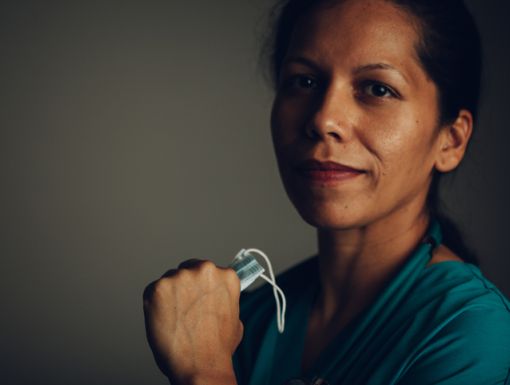
Why Are Black People at Greater Risk of Colon Cancer?
The 2020 death of beloved actor Chadwick Boseman left many people asking questions about colon cancer.
How could he have had colon cancer at such a young age? Wasn’t he in great physical shape?
Indeed, these are the same questions that we oncologists were asking ourselves, particularly in light of the continued rise in rates of colorectal cancer in young adults. Although the number of patients being diagnosed with and dying from colorectal cancer has been declining over the past several years, more cases than ever are being diagnosed in patients under the age of 50.
According to the American Cancer Society, colorectal cancer is now the No. 1 cause of cancer death in men under 50 and the No. 2 cause of cancer death in women under 50.
Especially relevant to the news about Mr. Boseman is the fact that African-Americans are the most likely race/ethnicity to be diagnosed with colorectal cancer, particularly at a younger age.
Furthermore, when considering patients who are diagnosed with colorectal cancer, dying from colon cancer is significantly more likely in African-Americans compared with white people. We have explanations for some of these differences in mortality but not all of them.
African-Americans are more likely to have a more advanced stage at the time of diagnosis, meaning having cancer spread beyond where it originated – either to nearby lymph nodes or distant organs. This difference accounts for some of the increased likelihood of dying from colorectal cancer. Additionally, factors such as low socioeconomic status and less access to healthcare are associated with an increase in mortality from colorectal cancer.
Colorectal cancer screenings
Adults should start screening for colorectal cancer at age 45. For patients who have family members who have been diagnosed with colorectal cancer, screening should be considered even before the age of 45. Ultimately, the decision of when to begin screening is one that should be made after discussion with the patient’s primary care physician.
People at higher risk for colorectal cancer should talk with their doctor about whether starting screening earlier might be right for them. This includes people with:
- A family history or personal history of colorectal cancer or certain types of polyps
- A personal history of inflammatory bowel disease, including ulcerative colitis or Crohn's disease
- A known or suspected family history of a hereditary colorectal cancer syndrome
- A personal history of radiation to the abdomen (belly) or pelvic area to treat a prior cancer
Currently, colonoscopy is considered the gold standard for colorectal cancer screening. If a screening colonoscopy is completely normal, it typically does not need to be repeated for another 10 years. Sometimes, pre-cancerous growths can be found in the colon and removed, thereby preventing them from having the opportunity to become invasive colon cancers. In this case, a repeat colonoscopy is likely to be recommended three to five years later.
Other colorectal cancer screening tests exist, including imaging-based tests and scopes that do not examine the entire length of the colon. Stool-based screening tests are available that either test for the presence of blood (a sign of potential cancer) or test for the presence of abnormal genes in the stool that are commonly associated with colon cancer.
The advantages of the stool-based test are that they are not invasive like a colonoscopy and do not require a preparation to clean out your bowels. The disadvantages are that they need to be performed either annually or every three years, depending on the test. And if the stool-based test finds abnormalities, then a colonoscopy is recommended to further evaluate what may be wrong.
Colorectal cancer symptoms
It’s important to be aware of possible symptoms of colorectal cancer, no matter your age. The most common symptoms of colorectal cancer include:
- A change in bowel habits, such as diarrhea, constipation, or narrowing of the stool, that lasts for more than a few days
- A feeling that you need to have a bowel movement that's not relieved by having one
- Rectal bleeding
- Blood in the stool, which might make the stool look dark brown or black
- Cramping or pain in the abdomen (belly)
- Feeling tired or weak
- Losing weight without trying
Screening is vital, and for those at heightened risk due to family history or being due to race/ethnicity, I highly recommend having a conversation with your primary care physician about when to begin screening for colorectal cancer.
The bottom line is that despite advances in treatment, colorectal cancer continues to be a concern for adults of all ages, and increasingly for young adults. As we continue to dive into the research as to why African-Americans are at higher risk of being diagnosed with and dying from colorectal cancer, I want to emphasize actions that can be taken to reduce these risks. Exercise, a high-fiber diet, a healthy weight and cutting out bad habits like smoking and excessive alcohol drinking can all lower the risk of colorectal cancer.
We continue to mourn the tragic death of Chadwick Boseman, and if one positive can come out of his passing, I hope it will be the increased awareness of the plight of colorectal cancer in his demographic so that we can begin to fix it.
Learn more about colorectal cancer screenings at Ochsner: https://www.ochsner.org/services/cancer-care/cancer-screenings



